|
The most common errors for /dʒ/ are:
One challenge that the /dʒ/ "j" sounds presents for pronunciation is that it is not always spelled the same way. The most common spellings are the letters J and G at the start of words, and the letters -ge and -dge at the ends of words. Sometimes in the middle of words, there are some "hidden" j sounds. Below, find examples of the spelling of /dʒ/ in the middle of words. as j: enjoy - injure - major - majority - object - project - reject - subject as ge/gi/gy: agency - apologize - biology - danger - energy - engineer - imagine - intelligent - longitude - Los Angeles - magic - pigeon - register - refrigerator - original - region - Roger - strategy - technology - urgent - vegetable - Virginia as dj: adjust as dge: badger - budget as d: education, educate, graduate, gradual, individual, procedure, soldier, fraudulent
0 Comments
Pronouncing the letters of the alphabet in English can be challenging. When we start with A and say the letters in order, we may be correct, but when we have to spell something using the letters, it is more difficult. Use the video above to refresh your memory on the sounds in the pronunciation of the letters, then use the techniques below to practice things you commonly need to spell. Practice Tip: Think of what you typically need to spell, and write out the pronunciation of the letters in order. Practice spelling out your name, street address, company name or other information you typically give out. For additional help with being clear while spelling over the phone, check out this lesson. Examples: If your name is Rajesh, write the following: are, ay, jay, ee, ess, aych If your last name is Rodriguez, write it out like this: are, oh, dee, are, eye, gee, you, ee, zee If you live on Palatine Road, write it as: pee, ay, ell, ay, tee, eye, enn, ee The Full Alphabet In the dictionary, the pronunciation of actually is written as /æktuəli/, which sounds like ack-chew-uh-li. Most of the time, we don't say all four syllables, but instead, we use three: "ack-chuh-li." Use the video above to help you hear and pronounce this word the way Americans do. Then try some sentences using the word.
In American English, we have 3 different ways of making a "T" sound. For all of the /t/ sounds, we use the tip of the tongue and the alveolar ridge (the roof of the mouth just behind the teeth). In the start of words, we always use an aspirated t. This means we have a puff of air which escapes when we release the t.
At the ends of words, Americans often use a stopped T. This means they move the tongue into position for the /t/, but they don't release the air.
In the middle of words, we use aspirated T, stopped T, and flapped T. A Flap T is different because the voice is on (unlike the other types of T, which are voiceless), and a flap T does not have any build-up of air like a T or a D. The tongue contacts the alveolar ridge lightly and releases immediately. If you have difficulty with flap T, it can help to think of it as a light D sound.
Unfortunately, we don't always use a flap T in the middle of words. The video below gives you examples of the following patterns:
Medial T is usually flapped when between 2 vowel sounds. This includes final T when the next word begins with a vowel and we link words. (Final T Linking is discussed here.) Most words with -ter, -ted, -test, -ting, -ty better, batter, butter, letter, waiter, writer, water, litter, greater, lighter, wetter waited, righted, lighted, matted, sighted, fitted, metabolic, artificial, comforting, dirty, city greatest, hottest, fatal, hospital, turtle Medial T (stopped when followed by syllabic n or -ment, -ance, -ly, -m) Button kitten mittens rotten cotton mountain threaten Appointment, department, commitment, disappointment, adjustment, treatment Important, Importance, combatant, pollutant, Ultimately, infinitely, Atmosphere Medial T between 2 vowels (aspirated when second syllable is stressed, other exceptions) Guitar potato eighteen hotel motel retirement material Architecture laboratory irritant militant Medial T (aspirated when not any of the above: in a cluster, not between two vowels) Distant, Opportunity, transportation, Intonation, enter, interpretation, reputation, representation, concentrate, multi-, sophisticated, documentation, investigate, particular, metro-, consultation, continuation, anticipation Medial nt words, can sometimes omit t: wanted, Santa Barbara, counter, anti- (eg antibiotic) inter-(eg international), representative, identification, disappointing, advantage One of the most frequently occurring accent error patterns is using and "s" sound at the end of a word when you should be saying a "z" sound. Use the videos below to learn how to correct this error pattern, and how to know when letter s says "s" and when it says "z." Guidelines for pronouncing letter "s" at the ends of words: If you see an s or se at the end of the word, it is usually pronounce /z/. Check the dictionary to be sure. Spelled letters -ss, say /s/ examples: glass, grass, less, guess Spelled letters -ce, say /s/ examples: ice, place, space, face Spelled letter -s, Usually /z/ examples: was, is, goes, his, as, eyes (say "waz, iz, goez, hiz, az, eyez") Spelled letter -s, (sometimes s) examples: yes, us Spelled letters -se, Usually /z/ examples: those, use, these, please (say "thoz, uz, thez, pleaaz") Spelled letters -se, (sometimes s) examples: house, goose, lease |
Categories
All
Archives
May 2024
Have Questions?
Get A Free Consultation We offer a free 30-minute phone consultation. Schedule yours now. |
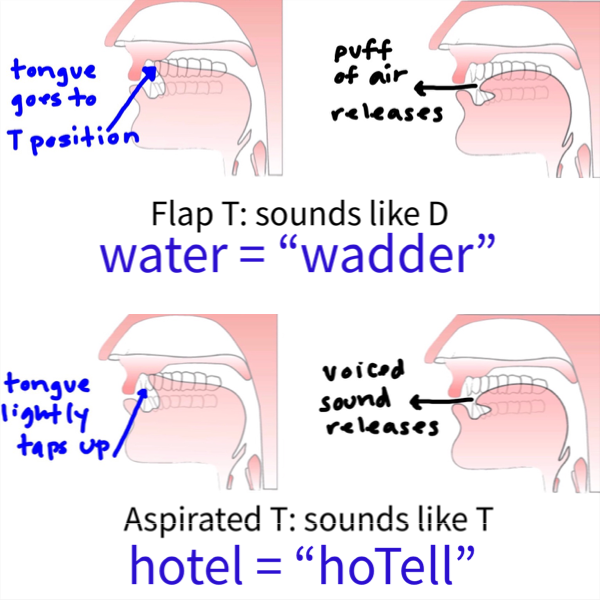
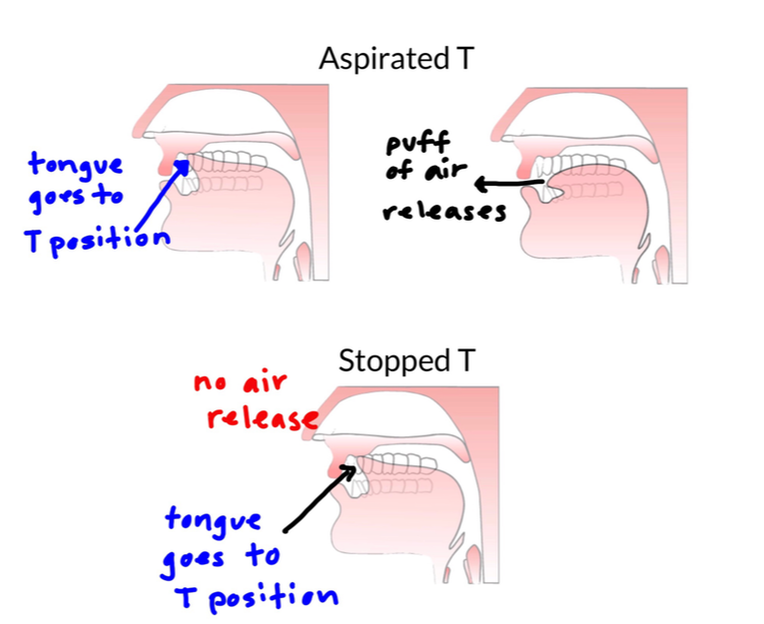
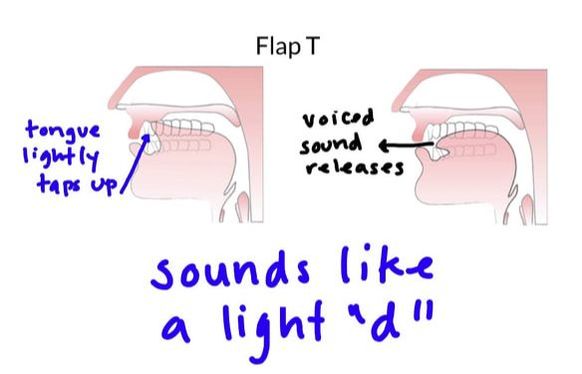
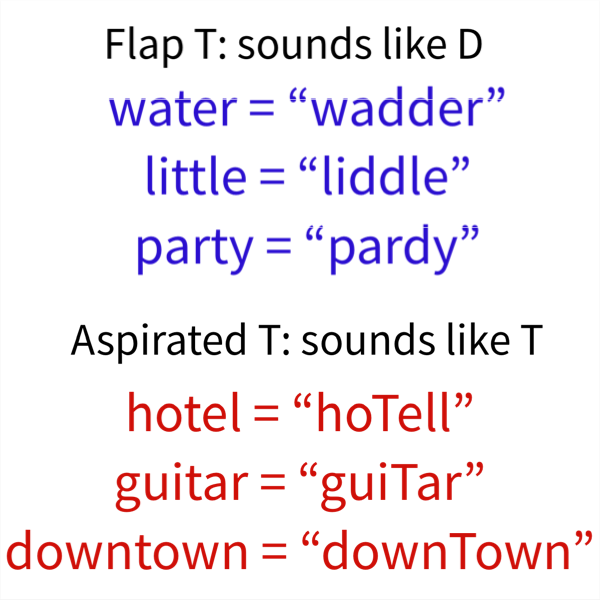
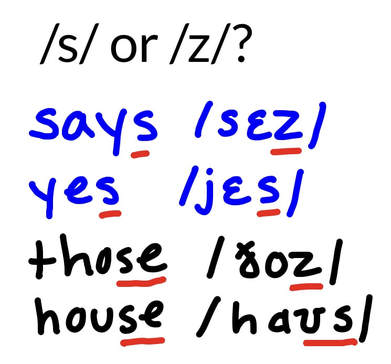
 RSS Feed
RSS Feed

